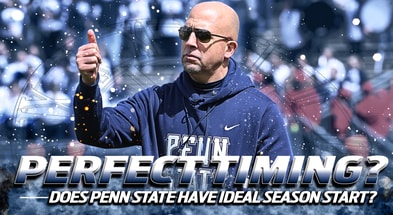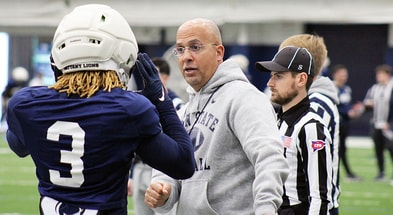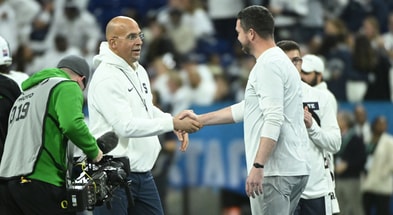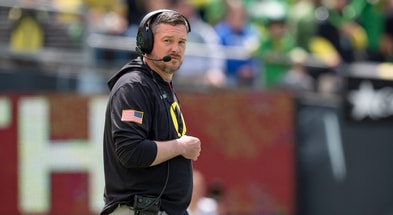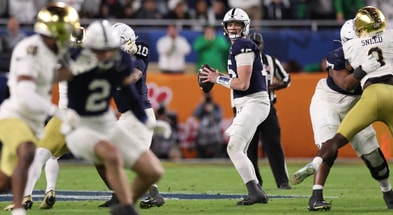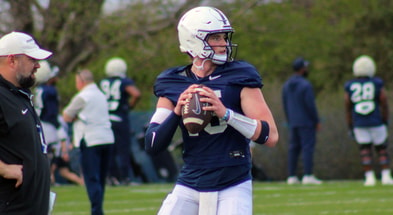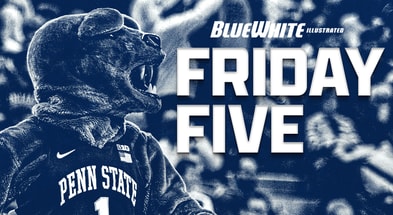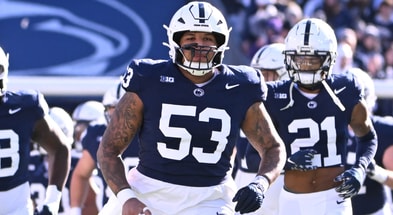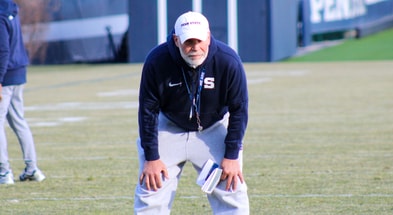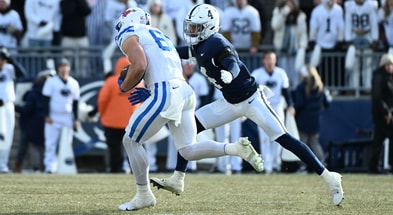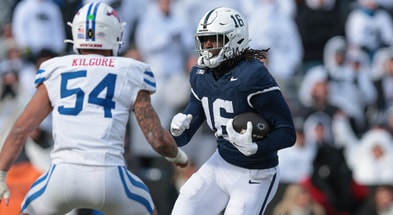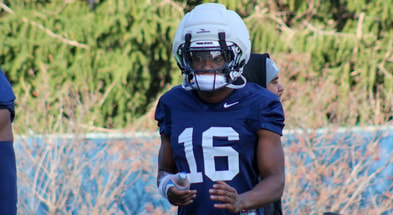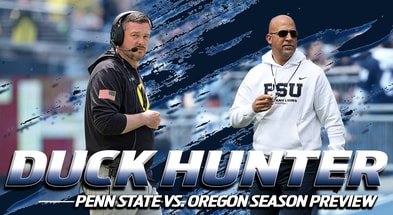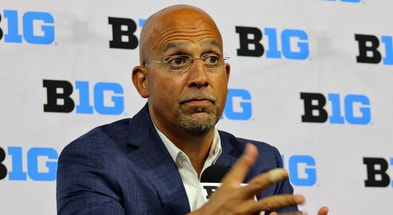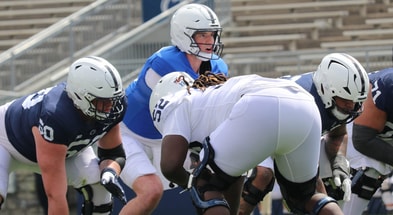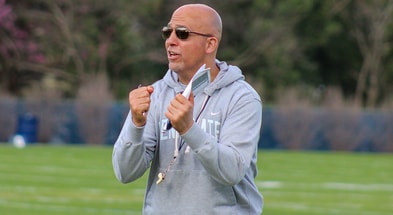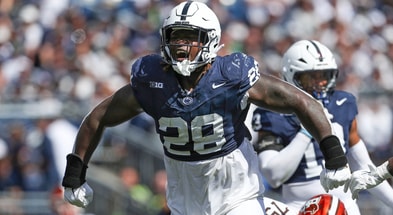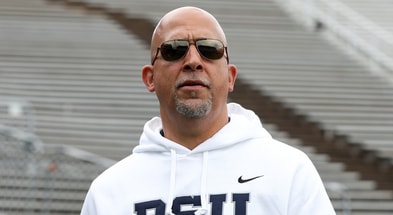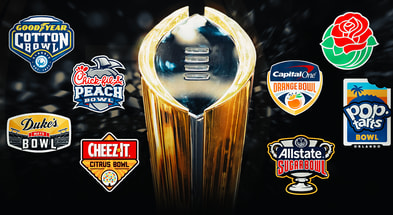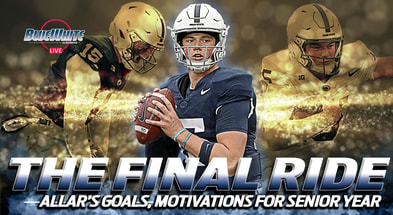Which Penn State football players will attend Big Ten Media Days in July?
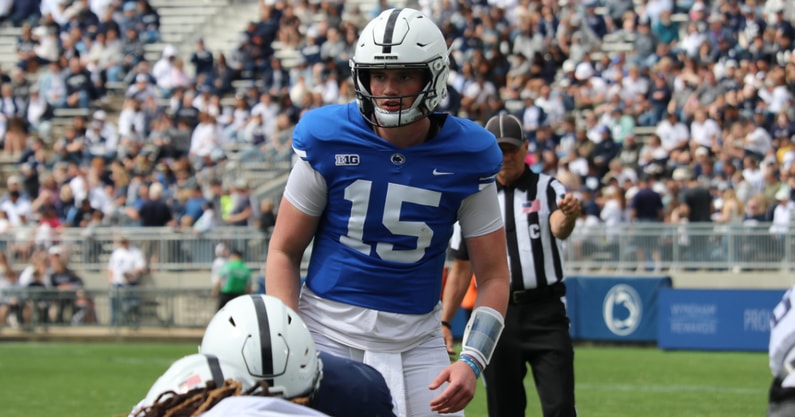
Penn State football has picked its three player representatives for this year’s Big Ten Media Days. Quarterback Drew Allar, center Nick Dawkins, and safety Zakee Wheatley will join head coach James Franklin in Las Vegas on July 23. It makes the first time the conference is moving its annual unofficial kickoff to a new season to the west coast. The Nittany Lions will be featured on the second of the three-day event. Coverage will start July 22-24 at 1 pm ET on the Big Ten Network.
Franklin will be attending the league gathering for the 12th time. It’s also been held in Chicago and Indianapolis during his Penn State tenure. It will make his latest chat with reporters after last doing so on June 6. He will undoubtedly be asked to share his thoughts on the future of the College Football Playoff after his team made it for the first time in 2024. He also discussed that topic earlier this month.
“It’s an interesting discussion with a lot of different perspectives and a lot of people that have very, very strong feelings in terms of what’s in the best interest of college football, what’s in the best interest of fans, what’s in the best interest of the sport,” Franklin said. “And I get all of it. I think the challenge that we have, and why I think we need a commissioner, and why I think a lot of people probably agree with that, and I’ve stated this before, the majority of people that have strong opinions have an agenda and are biased based on what’s good for them, right? And that’s where my role sitting on the AFCA board, even that’s challenging. Like we’re supposed to sit in that room and take your hat off and represent football. That’s hard to do for all of us, right? There’s a competitive aspect of all of these things for all of us.
“I think the reason that the Big Ten and the SEC feel like there’s an argument for more is because of a lot of the things that I’ve also brought up in the past. Of the discrepancies or things that are not even or balanced in the sport. When you have some conferences playing nine games, some conferences playing a conference championship, some teams not in a conference, it makes it really difficult. And then the other issue you’ve had in the past, every conference, and every team, or every AD, would have the same vote. Well, if we have more teams in our conference now, and have a greater level of competition week in and week out, why should it be balanced, I think is the discussion everybody’s kind of having, if that makes sense.
Top 10
- 1New
Preseason CFB rankings
From No. 1 to 136
- 2Hot
SEC Football
ESPN ranks from top to bottom
- 3
Joey McGuire
Calls for series vs. LSU
- 4
Scott Frost
Fires shot at Nebraska
- 5Trending
Alabama chasing No. 1
Tide on recruiting roll
Get the On3 Top 10 to your inbox every morning
By clicking "Subscribe to Newsletter", I agree to On3's Privacy Notice, Terms, and use of my personal information described therein.
More: Penn State banking on transfer receiver Trebor Pena’s proven production
“Again, depending on what seat you’re sitting in, that’s the challenge. And that’s where, to me, the most important thing that can happen is all the commissioners get getting together, or a commissioner of college football getting everybody together and say, ‘Look, everybody’s going to be the same. We’re all going to play the same number of conference games, we’re all going to play the same number of games. We’re all going to play a conference championship game or not. Then I think that would help. That would help the Playoff committee at the end of the year make decisions. Like somebody I think said today, ‘well, let’s just choose the best 16.’ Well, how do you choose the best 16? How do you choose the best 16 if you’re trying to project who they are. I think that the people’s frustration is.
“I think Illinois is a good example. I think people feel like Illinois is a good example from our conference, that you can make the argument deserved to be in, and there’s arguments from other conferences, especially after how things played out the way they did. So I guess, to answer your question, I don’t have as strong of an opinion of how it should be on the back end. I think the more important conversation is, what can we do on the front end to make it easier for all these decisions on the back end? If not, it’s going to be a constant struggle. And I think I guess my point is, that’s why I think the Big Ten and the SEC are saying we should get more AQS, because it’s not the same right now.”
